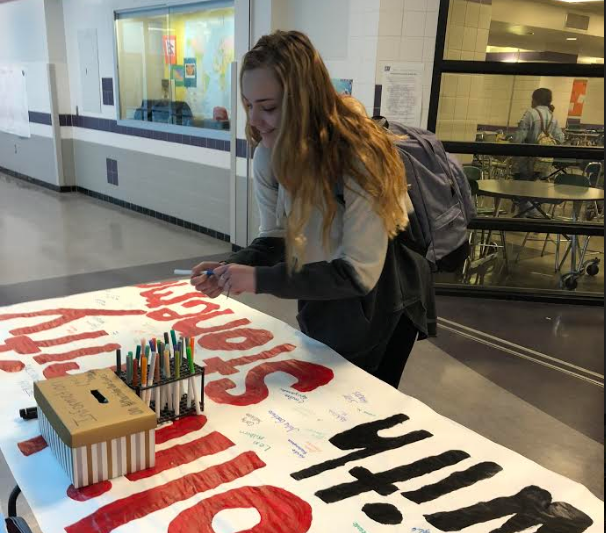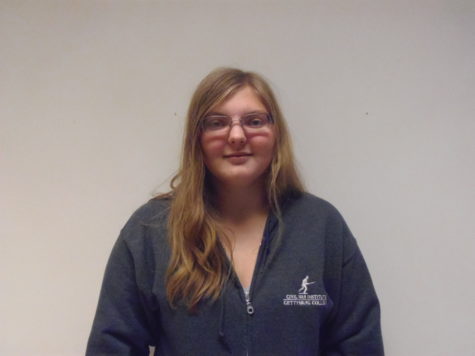Opinion: College activists, meet your high school counterparts
Junior Hailey Guzzi signs poster for Parkland students.
March 14, 2018
The stereotype of the young college activist now has a younger sibling: the high school activist. This development has arisen over the past year and a half, as teen involvement in politics has dramatically increased compared to previous years.
While some might say that opposition to President Trump is the cause of this increased activism, particularly given participation in the Women’s Marches, that is not entirely true.
Not all high schoolers are liberal, and a majority of them have beliefs that rest in the middle realm of the political spectrum. Also, there are conservatives in high school, but not all of them blindly support Trump. What unites these three groups is their passion for political issues and how they express these passions.
Most teens have at least an Instagram, Snapchat, or Twitter account where they share not only their views on vines, but also their opinions about current issues in America. Social media can then connect them with those who share similar beliefs in their school and more importantly across the country.
Passion and communication are the reason that school walkouts have been held to speak out against gun violence this year. Both factors also contribute to these walkouts being in mainstream media, due to posting plans, signs, and pictures of the events when they occur.
Also, the more an event or topic is in the news, the more influence it has on society. This cycle shows the future of organizing national, potentially even global, protests on social media to create real change.
Overall, teens being involved in political issues is a good thing. It means the future generation will be more active in voting, campaigning for improvements in society, and other aspects of civic duty. Yet, students still need to be cautious when it comes to participating in events that could put them in dangerous situations.



